RESEARCH topics
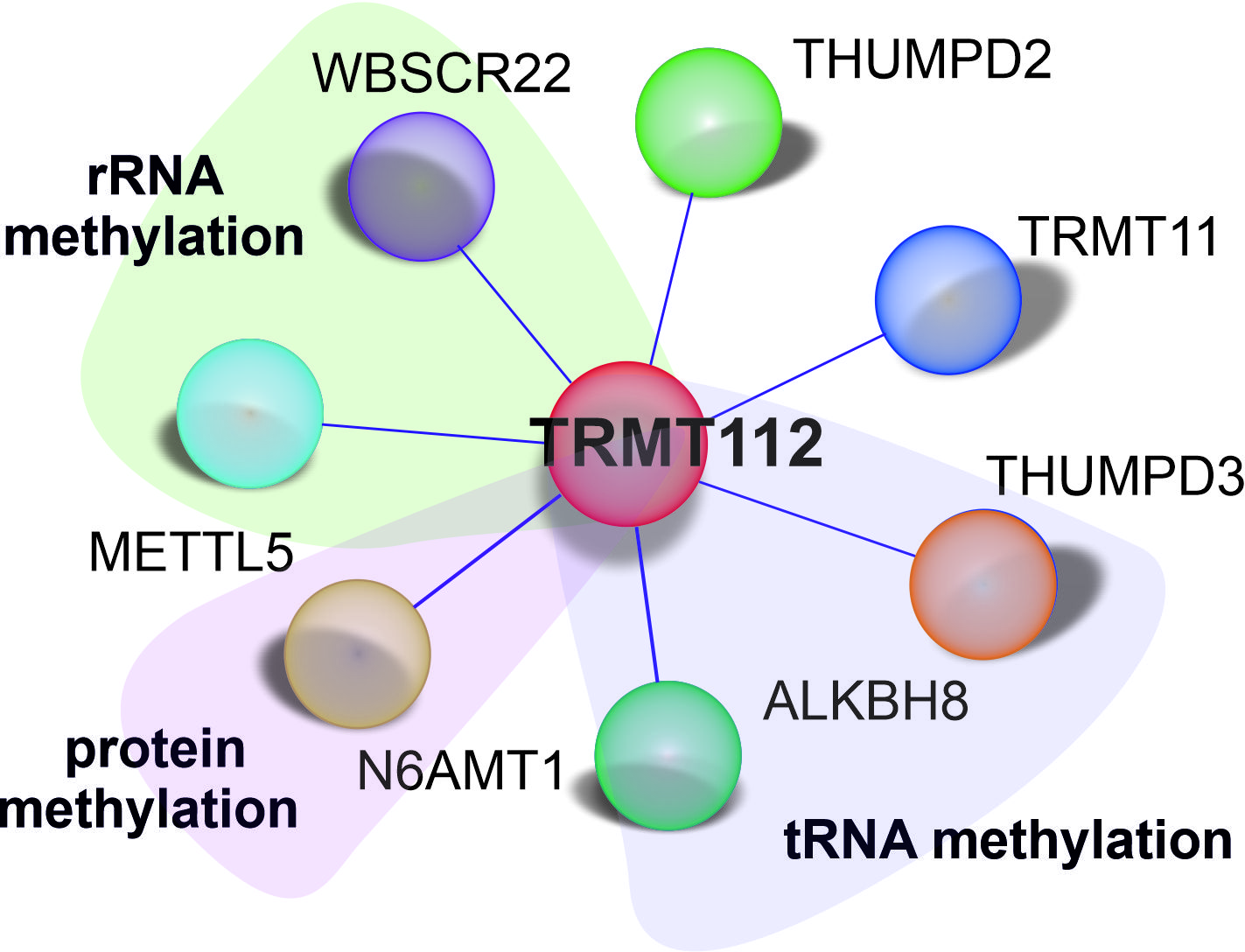
Role of RNA methyltransferases in the cell growth and proliferation
Methyltransferases are enzymes that methylate nucleic acids, proteins or small molecules and through this modify their biochemical and cellular functions within the cell. Our research is focused on RNA methyltransferases, specifically on the WBSCR22 protein and its co-factor TRMT112. We have identified the network of methyltransferases, consisting of seven proteins, interacting simultaneously with the same co-factor TRMT112, which is required for their stability and activity in the cells. Several members of this TRMT112-methyltransferase network are involved in cell growth and division, and malfunctions in their activity may lead to uncontrolled proliferation of cells causing different malignancies. Our goal is to elucidate their function in the cells and to find out how the cross-talk with each other is achieved.
Currently working on this topic are: Margit Mutso (PhD), Baiba Brumele (MSc), Mihkel Suija (MSc), Alexandra Lupp (BSc), Adiya Raimkul and Paulina Lo Luik. Watch Baiba work by clicking on the picture
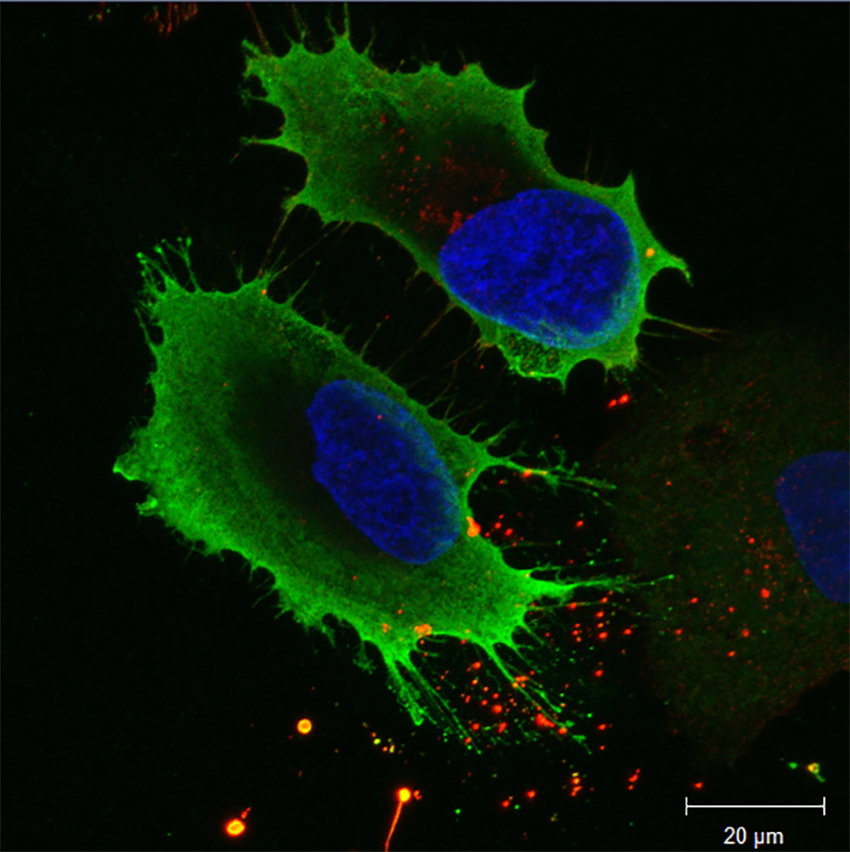
MAGEA proteins in tumorigenesis
Melanoma-associated antigen A (MAGEA) family proteins represent a class of tumor antigens that are expressed in a variety of malignant tumors, but their expression in normal tissues is restricted to germ cells. MAGEA proteins are cancer-testis antigens which expression is linked to poor prognosis in cancer patients. The biological functions and underlying regulatory mechanisms of MAGEA expression in cancer is still not fully understood. Our goal is to study in-depth the molecular functions of MAGEA family proteins and elucidate their role in cancer progression.
Currently working on this topic are: Kristiina Kurg (MD, PhD), Liina Küttis (BSc), Kerstin Rõuk (BSc), Marleen Tilga, Rando Kalbus and Marta Malsub. Watch our former PhD student, dr. Anneli Samel, work by clicking on the picture!
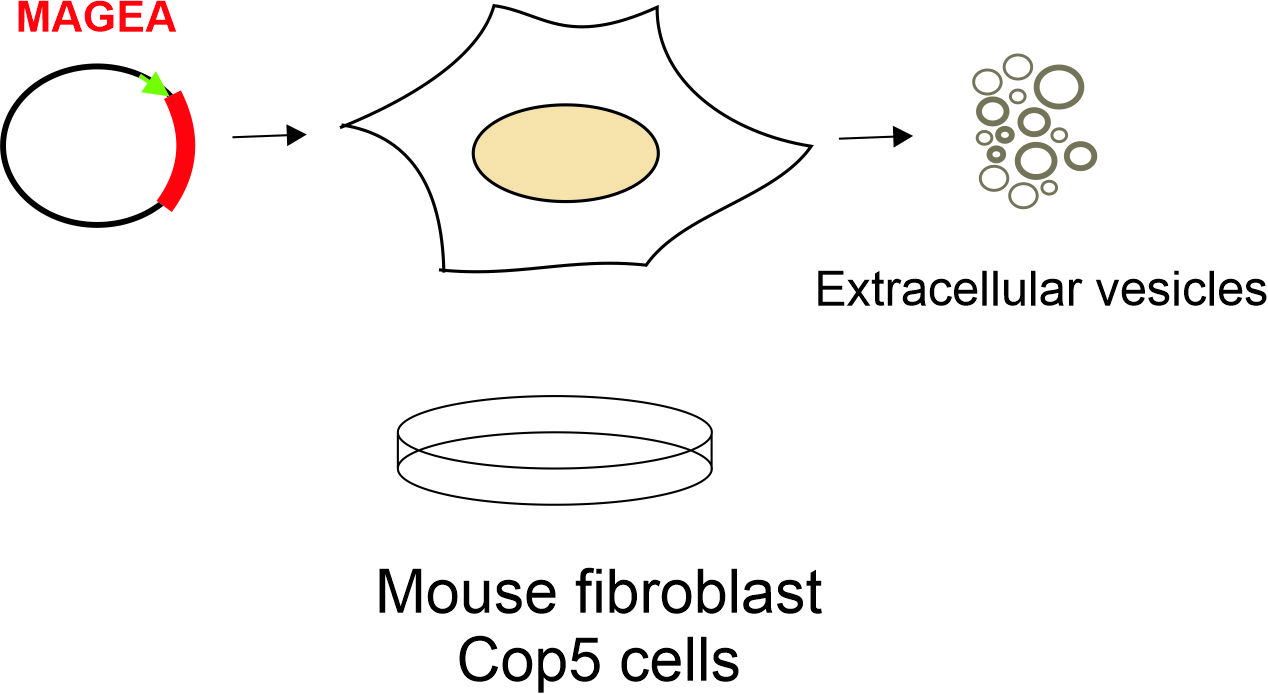
Engineering of extracellular vesicles (EVs)
Expression of MAGEA proteins induces the budding of cells and formation of extracellular vesicles with different sizes, 150 to 1500 nm in diameter. We have shown that the MAGEA4 proteins are attached efficiently to the outer membrane of extracellular vesicles in cell culture model. EVs offer interesting prospects for improving the delivery of therapeutic agents due to their intrinsic properties, such as tissue tropism and biocompatibility and our aim is to use the MAGEA4 protein in development of EVs with desired properties.
Our previous PhD student Olavi Reinsalu worked on this topic (watch him at work by clicking on the picture!) and currently Rando Kalbus is continuing on this work.
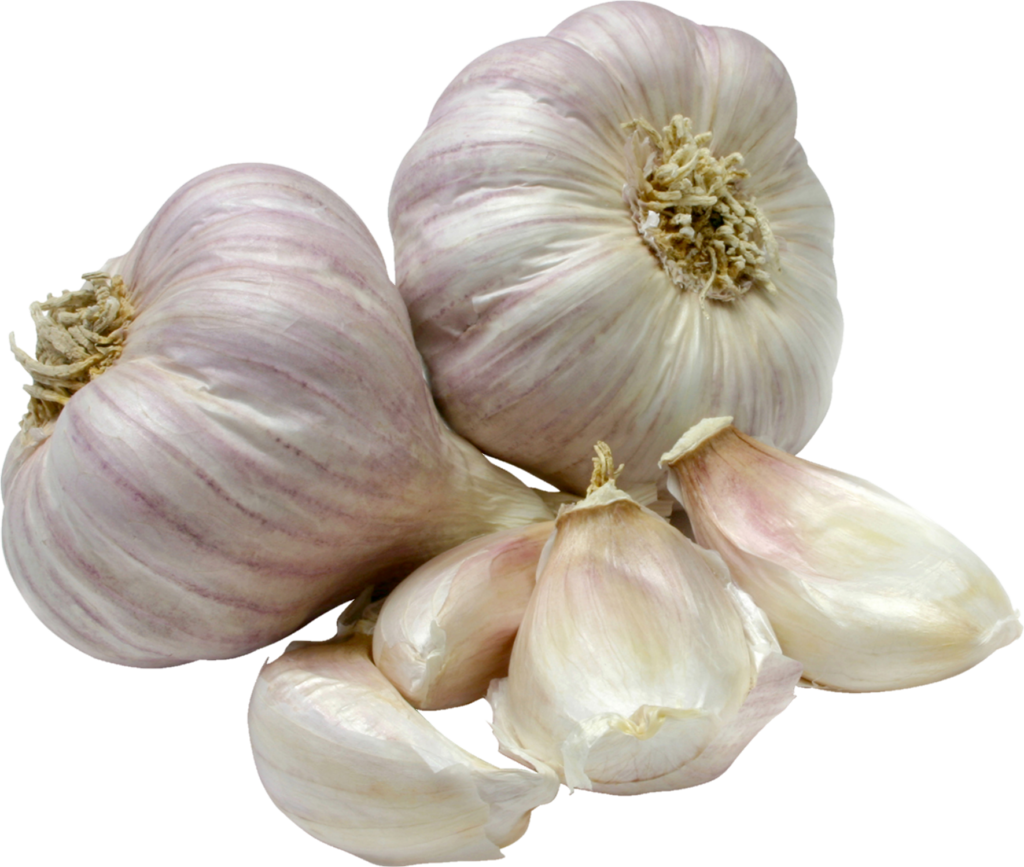
Development of purification platform for plant-derived extracellular vesicles
The aim of the project is the development of a platform for the purification of plant extracellular vesicles from Estonian raw materials; to find the best purification method for different plants and vegetables; and to compare the yields and purity as well as chemical, physical and biological stability under different storage conditions. Currently working on this topic are: Kristiina Kurg (MD, PhD), Eve Toomsoo and Paulina Blok.
PREVIOUS PROJECTS
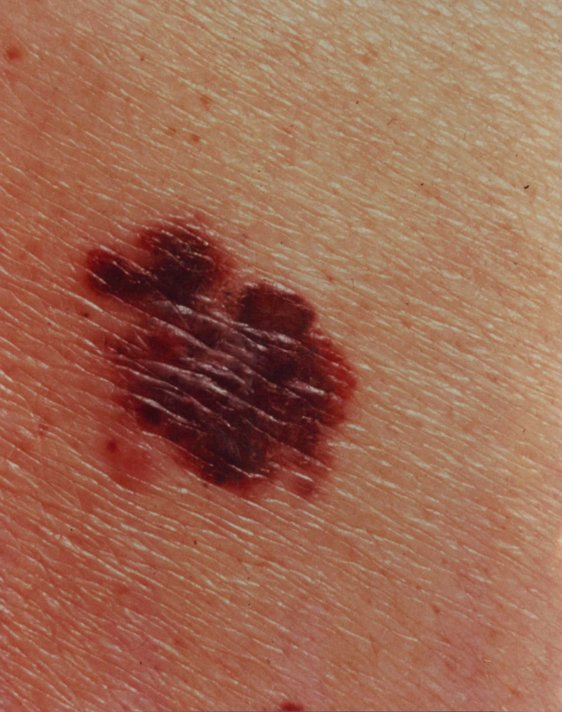
Liquid biopsy markers for melanoma
This project is dedicated for finding of new diagnostic markers for malignant melanoma. Melanoma is a malignancy of pigment-producing cells called melanocytes. Despite being the least common form of skin cancer, it has one of the highest mortality rates. The goal in melanoma diagnostics is early detection with an ability to differentiate between benign and malignant lesions. Our aim is to find tumor-derived biomarkers from peripheral blood, using specifically extracellular vesicles from the blood plasma and serum.
Kristiina Kurg (MD, PhD) worked on this topic. Watch Kristiina work by clicking on the picture!

